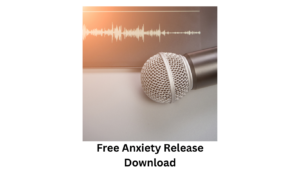 Reduce Anxiety With Your Mind
Reduce Anxiety With Your Mind
Have you ever felt like you are different to others, that you need to reduce anxiety within you?
You may be surprised to find that you are not so different to a huge percentage of the population.
Every 7 years a survey is done in England to measure different types of mental health problems including anxiety amongst the population. The survey is based upon people living at home and so does not include other possible sufferers, for example, the homeless.
The last published report was in 2009 and included the following statistics [1].
Anxiety 4.7 in 100
Depression 2.6 in 100
Anxiety / Depression 9.7 in 100
Eating Disorders 1.6 in 100
Phobias 2.6 in 100
OCD 1.3 in 100
Post Traumatic Stress Disorder 3.0 in 100
Panic Disorder 1.2 in 100
Mental Health problems are experienced by 1 in 4 people each year.
Environmental factors can have an increasing effect on the possibility of experiencing a mental health problem such as anxiety.
Factors such as income worries, job losses, provision of care, medical conditions, social interaction and exams can play a major part.
The ONS (Office for National Statistics) have found that people aged 45-59 have the lowest ratings of life satisfaction and happiness.
http://www.bbc.co.uk/news/uk-england-3547072
Anxiety, stress and other mental health issues can be relevant at all stages of life in different measures and different meanings.
The highly active environments we live within invite anxiety and stress quite effortlessly.
For example, a child or young adult will face examinations and tests at school and externally such as driving lessons, sports gradings and interviews.
Additionally, as has been bought to light recently in the news, there is more evidence of bullying and estrangement on platforms such as social networks which gives rise to possible anxiety, stress and other mental health issues of a social nature.
So What Can Be Done To Reduce Anxiety
There will always be situations that arise which cause us worry or concern and dealing with these is perfectly normal. However, when people find it hard to control or manage their worries it can have a negative impact.
Use The Mind To Generate Calm And Wellbeing
.  Smile – Smiling activates neuropeptides which are tiny molecules that facilitate neurons to communicate. Dopamine, serotonin and endorphins are released when you smile – the feel good feelings!! – and consequently the body can relax which may also lower your blood pressure and heart rate.
Smile – Smiling activates neuropeptides which are tiny molecules that facilitate neurons to communicate. Dopamine, serotonin and endorphins are released when you smile – the feel good feelings!! – and consequently the body can relax which may also lower your blood pressure and heart rate.
When you smile, the outside world is encouraged to feel good with you!!
 . Ratio Breathing – When we are feeling anxious or stressed our breathing can alter and inhalations are emphasized at the expense of exhalations. Within our nervous system are the sympathetic system and the parasympathetic system. The sympathetic system raises blood pressure, heart rate and tension in preparation for physical activity. The parasympathetic system does the opposite.
. Ratio Breathing – When we are feeling anxious or stressed our breathing can alter and inhalations are emphasized at the expense of exhalations. Within our nervous system are the sympathetic system and the parasympathetic system. The sympathetic system raises blood pressure, heart rate and tension in preparation for physical activity. The parasympathetic system does the opposite.
Inhalation stimulates the sympathetic system and exhalation the parasympathetic.
So try this process of ratio breathing. Inhale for 3 counts and then exhale for 6, through the nose. You can adjust the ration to 2 in and 4 out as you feel yourself relax or if you feel uncomfortable with the longer ratio. Even a 2:1 ratio will help your body and mind to relax. Start by practising for a few minutes each day.
 . 10 minutes laughing time – When we laugh we feel the world is a lighter place. By bringing laughter into our lives we can decrease stress hormones. When we smile we release dopamine which produces feelings of happiness. When we are laughing our minds are distracted from the negative thoughts and most importantly, it feels good to laugh!!.
. 10 minutes laughing time – When we laugh we feel the world is a lighter place. By bringing laughter into our lives we can decrease stress hormones. When we smile we release dopamine which produces feelings of happiness. When we are laughing our minds are distracted from the negative thoughts and most importantly, it feels good to laugh!!.
So take 10 minutes out of your day to have some happy time and laugh – watch something funny, do something that makes you laugh, be with someone who makes you laugh. By seeking out the laughter, you are bringing on the happiness!!
 . Recognise the feeling – Uncomfortable feelings can often be felt but not identified. If you try to recognise the feeling you have it may gain you more insight into a way of feeling better. Take a step back and think about how you are exactly feeling i.e. angry or sad. Then try to identify the cause of the feeling. The next step is very important …. think about what YOU can do to help yourself feel different, do not rely upon others to remedy your feelings. By stopping and identifying your feelings you can plan to change them.
. Recognise the feeling – Uncomfortable feelings can often be felt but not identified. If you try to recognise the feeling you have it may gain you more insight into a way of feeling better. Take a step back and think about how you are exactly feeling i.e. angry or sad. Then try to identify the cause of the feeling. The next step is very important …. think about what YOU can do to help yourself feel different, do not rely upon others to remedy your feelings. By stopping and identifying your feelings you can plan to change them.
 . Is it out of your control? – Pause to think about whether you have any control over the situation you are worrying about. If you have no control then consider whether it is a good thing for you to worry for the period of time it will take until there is an answer or solution to the problem – think about the stress it will be putting on you both physically and mentally within this period of time of no change.
. Is it out of your control? – Pause to think about whether you have any control over the situation you are worrying about. If you have no control then consider whether it is a good thing for you to worry for the period of time it will take until there is an answer or solution to the problem – think about the stress it will be putting on you both physically and mentally within this period of time of no change.
If you do have some control over the situation, make a plan of what you can do to change the situation and how you are feeling. Even the smallest of change can have a big affect.
 . Time Passes – Remember that whatever you are dealing with will pass.
. Time Passes – Remember that whatever you are dealing with will pass.
There are always times in our lives where we are dealing with things that seem insurmountable and extremely stressful so try and remember that things have passed by before … you are still here!!.
Time passes and we can either sit still with a situation or allow ourselves to move forward into the future where the situation will have passed.
These are conscious methods that you can apply to alter how your mind deals with anxiety, but if you would like to learn how you can employ your subconscious mind to work on your behalf in a positive way for anxiety, please do not hesitate to contact AbsoluteU Clinical Hypnotherapy for your free telephone consultation.
07909 992635 / 01403 267276 Email:info@absoluteu.co.uk
[1] The Health and Social Care Information Centre, 2009 http://wwwgov.uk/pubs/psychiatricmorbidity07
[ratemb_reviews campaign=”80″ summary_link=”/testimonials/”]

